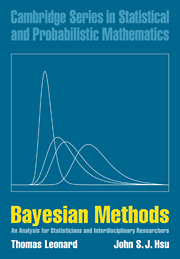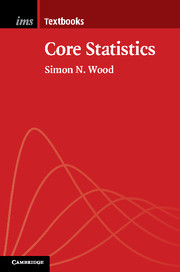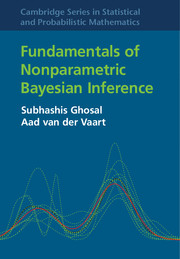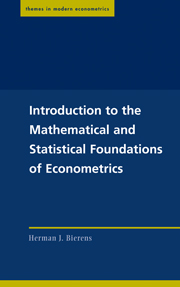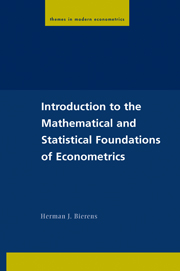Bayesian Methods
This exposition of the Bayesian approach to statistics at a level suitable for final year undergraduate and Masters students is unique in presenting its subject with a practical flavor and an emphasis on mainstream statistics. It shows how to infer scientific, medical, and social conclusions from numerical data. The authors draw on many years of experience with practical and research programs and describe many new statistical methods, not available elsewhere. It will be essential reading for all statisticians, statistics students, and related interdisciplinary researchers.
- Numerous worked examples, self-study exercises, and practical applications
- Many statistical methods
- Bayesian statistics with a practical flavor; directed towards mainstream statistics, and how to infer scientific, medical, and social conclusions from your numerical data
Reviews & endorsements
"The book provides a solid, well-written introduction to the basic tenets of Bayesian modeling, and deserves serious consideration for adoption for a graduate-level introduction to Bayesian methods." Journal of the American Statistical Association
"This book provides excellent up-to-date coverage of modern Bayesian statistics...clearly written and at a reasonably high level." Mathematical Reviews
"Bayesian Methods is pregnant with detailed examples, pulled primarily from recent literature, especially from contributions by the authors. Rather than serving simply as illustrations of results in the text, these examples are an integral part of the authors' development. What is more, they are interesting. They endow the theory with life and draw the reader deeper into the text. I strongly recommend this book to anyone interested in Bayesian methods. I look forward to using it in the classroom." Technometrics
Product details
August 2001Paperback
9780521004145
348 pages
253 × 180 × 19 mm
0.74kg
69 b/w illus. 27 tables 150 exercises
Available
Table of Contents
- 1. Introductory statistical concepts
- 2. The discrete version of Bayes' theorem
- 3. Models with a single unknown parameter
- 4. The expected utility hypothesis and its alternatives
- 5. Models with several unknown parameters
- 6. Prior structures, posterior smoothing, and Bayes-Stein estimation
- Guide to worked examples
- Guide to self-study exercises.

